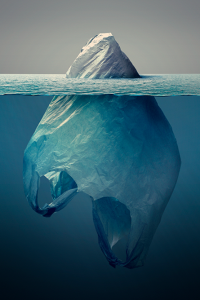Happy Long Weekend! Update May 19th and Important Dates List
Hello Everyone!
We have had a busy week working on projects, having great discussions, and doing some awesome outdoor activity through dragon boating!
Projects We Are Working On:
- Disasters Project is due May 26th EOD. Don’t forget to have a variety of sources including an encyclopaedia, legitimate science websites, and newspapers. Remember to make a bibliography.Project description can be found here. And the rubric: Disasters Project Rubric 2017
- ART: Your animal art should be done. They look great! Remember to take a picture of the art, post it to your E-Port, and then write two paragraphs for assessment (art and language arts). Paragraph 1: Talk about your animal (8-10 sentences), Paragraph 2: Tell us about the images you used on the drawing — how do they relate to information you discovered about your endangered animal?
- Weather Report: Due June 1st. French Rubric Weather Report. You have the project description in your binders.
- MASKS: Keep working on your masks designs, adding any details before next week to your nature character. Bring your bag of supplies to make plaster mess no later than Thursday next week.
- POETRY: Today we went over different kinds of literary devices used in poetry. Then we talked about Blues and Spoken Word Poetry, which are two forms of poetry used to express emotional ideas. Remember, you will need to think about what your nature character and you would like to say – something that is important to you both. You will be writing a poem, which could be free verse or any other style, to express the character’s ideas.
Math Update:
- Remember, for independent math, you need to complete two more units by June 7th. Most of you are doing a great job with this!
- Thank you to everyone who took the Gauss and Abel exams. Results announced at the end of year Recognition Assembly on June 27th.
- We have been doing group math challenges using Pickle Math online. So far, we did the Venn Diagrams challenge as part of our focus on graphs/charts/data and nature, and we also looked at the Hexagonal Trampolines probability challenge. We will keep doing these until the end of the year. The problems are tough, but I hope you enjoy them! I expect everyone to at the minimum participate and turn in their work as they go through the problem-solving process. (NOTE: Please do not use Pickle Math online, as this will ruin the work we do together.)
Independent Project:
- Ms. D has been working to make connections in our community so everyone can get some primary research done, but “it does take a village!” Make sure you talk with Mom and Dad to see if they know anyone that could help. Thank you to all parents who have been helping with this.
- Go to the public library!!!! I would love to start seeing students bringing in any books they have found on their topics there! Please go!
- Make sure you are keeping a running bibliography and taking notes as you research.
- If you are doing an experiment, make sure you write up a proper lab.
- If you do an interview, make sure you type up questions and answers.
- Research, notes, bibliography, and primary research are due June 7th.
All Upcoming Events and Dates (six weeks left!!!):
- Dragon Boating May 23rd. Leaving at 9:45 AM
- Plaster Mess May 25th Thursday afternoon, bring supplies
- Dragon Boating May 26th. Leaving at 9:45 AM
- Disasters Project Due May 26th EOD
- Sexual Education with Saleema Noon Educators (more info to come) May 29th-May 31st
- French Weather Report Due June 1st EOD
- PRO D, NO SCHOOL June 2nd, Friday
- Ultimate Workshop for PE June 6th, Tuesday
- Independent Research Notes/Bib/Primary Research Due June 7th, EOD
- Sports Day June 9th
- Vancouver Maker Faire at the PNE (Ms. D there on Saturday) June 10-11
- Battle of the Books Competition in Class June 12
- Kayaking Deep Cove June 20th, Tuesday
- Independent Project Presentations/Viewing — Parents Welcome, 12-2 June 23rd, Friday
- Recognition Assembly Awards/Certificates, June 27th
- MACC 4/5 Awards and Party, CLEAN UP OF ROOM June 28th
- LAST DAY June 29th 9-10 AM, Reports Go Home

